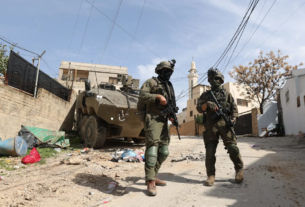The killing of a prominent activist and whistleblower has reignited concerns about the safety of those exposing corruption and crime in South Africa. Pamela Mabini, a respected community leader and founder of the Maro Foundation, was shot outside her home in Kwazakhele, Gqeberha, on March 7.
Mabini dedicated her life to advocating for justice and reducing crime in her community. Through her nonprofit organization, she provided critical support to victims while working to hold perpetrators accountable. Her efforts were widely recognized, and she played a crucial role in pushing for change.
Her activism extended to high-profile cases, including the prosecution of televangelist Timothy Omotoso, who is on trial for rape, racketeering, and human trafficking. Mabini regularly attended court hearings, took part in protests, and assisted survivors and witnesses throughout the legal process.
Her assassination has intensified fears about the dangers faced by whistleblowers and activists in South Africa. Many who uncover wrongdoing endure harassment, threats, financial losses, and, in extreme cases, assassination. Critics argue that the government has failed to provide sufficient protection to those risking their lives to expose corruption.
South Africa has a long history of whistleblowers being silenced through violence. The murders of Babita Deokaran and Jimmy Mohlala serve as stark reminders of the risks involved in speaking out. Others, like Athol Williams and Martha Ngoye, have suffered professional and personal hardships after exposing corruption within government institutions.
While laws exist to protect whistleblowers, many argue that enforcement is lacking. Individuals who come forward often receive little to no legal, financial, or psychological support, making them easy targets for retaliation. Advocacy groups have been calling for stronger protections for years, yet meaningful action has been slow.
In 2023, the Department of Justice proposed a series of reforms aimed at strengthening whistleblower protections. The plan included enhanced witness security, financial assistance, and legal support. However, delays in implementation have left many vulnerable to attacks.
President Cyril Ramaphosa acknowledged the issue during his State of the Nation Address on February 6, 2025. He pledged to finalize the Whistleblower Protection Framework and introduce a new bill in Parliament within the financial year. While this promise was welcomed, activists insist that urgent action is necessary to prevent further tragedies.
Mabini’s murder has intensified calls for immediate reforms. Advocacy groups are urging the government to fast-track legal protections, strengthen security for whistleblowers, and provide financial and psychological support to those at risk. Without these measures, individuals exposing corruption will remain in grave danger.
The South African government must move beyond promises and take concrete action to protect whistleblowers. Strengthening protections is not only essential for ensuring justice but also for safeguarding democracy. If reforms continue to stall, more whistleblowers will lose their lives, and corruption will persist unchecked.
Mabini’s death is a tragic reminder of the cost of speaking the truth. Without urgent intervention, whistleblowers across South Africa will continue to face deadly consequences for their courage.




